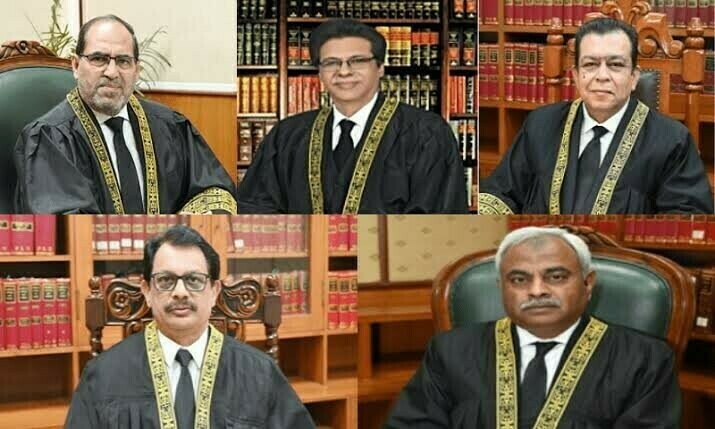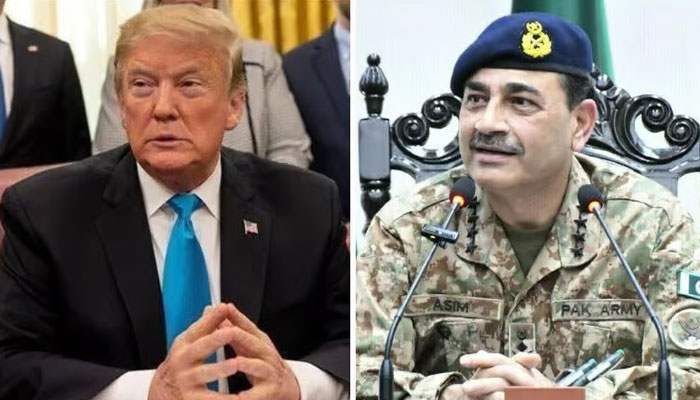
Supreme Court Validates Transfer of IHC Judges, Rejects Petitions Challenging Legality
On Thursday, the Supreme Court’s Constitutional Bench delivered its verdict on the controversial transfers and seniority of judges to the Islamabad High Court (IHC), ruling that the transfers were constitutional and did not amount to fresh judicial appointments.
The bench, led by Justice Muhammad Ali Mazhar and comprising Justices Naeem Akhtar Afghan, Shahid Bilal Hassan, Salahuddin Panhwar, and Shakeel Ahmed, heard petitions submitted by five IHC judges, the Karachi Bar Association (KBA), and the IHC Bar Association.
The case stemmed from the February transfer of three high court judges — Justice Sardar Mohammad Sarfraz Dogar (LHC), Justice Khadim Hussain Soomro (SHC), and Justice Muhammad Asif (BHC) — to the IHC. Controversy followed when Justice Dogar was designated as the senior puisne judge, placing him in line to serve as acting IHC chief justice after Justice Aamer Farooq’s elevation to the Supreme Court.
Announced in a 3-2 majority decision, the court upheld the validity of the transfers. Justices Afghan and Ahmed issued dissenting opinions.
According to the short order, the Supreme Court clarified that judicial transfers executed by the president under Article 200 of the Constitution do not equate to new appointments. The court emphasized that such transfers must adhere to a structured consultative framework involving the judge’s consent, the Chief Justice of Pakistan, and the chief justices of both the transferring and receiving high courts.
The judgment stated that the president’s authority in such matters is constitutionally bound and does not fall under executive discretion. It upheld the framework for transfers as legitimate and constitutional.
However, the court noted that the terms of the transfer — especially those related to seniority and whether the postings were permanent or temporary — should have been clarified in the presidential notification. The matter was partially referred back to the president to determine the judges’ seniority based on their service records and to confirm the nature of the transfer (temporary or permanent), though the transfer orders themselves were not overturned.
Until such clarification is provided, Justice Dogar will remain acting chief justice of the IHC.
Justice Naeem Akhtar Afghan authored the dissenting note, declaring the presidential notification for the transfers “null, void, and of no legal effect.”
He argued that the transfers represented a misuse of authority under Article 200 and circumvented Article 175A of the Constitution, which governs judicial appointments. The process, he said, lacked transparency, adequate consultation, and bypassed meaningful input from the relevant chief justices.
Justice Afghan further criticized the haste in executing the transfers, stating that proper provincial representation in the IHC could have been achieved through new judicial appointments rather than permanent transfers.
He asserted that the process violated constitutional articles safeguarding due process, judicial independence, and equality before the law — specifically Articles 2A, 4, and 25.






